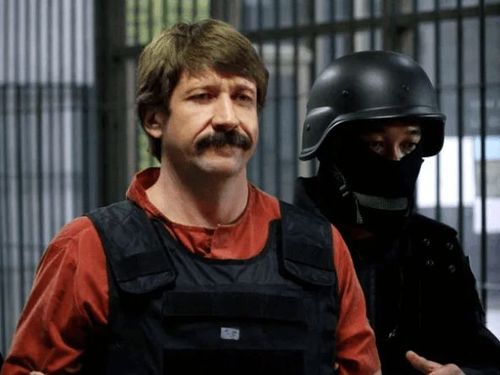Viktor Bout, who has often been referred to as the “Merchant of Death,” has started selling arms just two years after his release from a U.S. prison in a prisoner swap.
In 2022, Bout was exchanged for American basketball star Brittney Griner, who had been detained in Russia on drug charges. Following this swap, there were (international) debates about Bout’s future. Two years down the line, the debates seem to have reached a conclusion after reports indicate that the Russian arms dealer has re-entered the business, and is allegedly supplying weapons to the Houthis, a group labeled by the U.S. government as terrorists.
Who is Viktor Bout?
Viktor Bout is arguably one of the most notorious and well-known Russian arms dealers. He is so known that he inspired the 2005 Hollywood film, Lord of War. Even before his arrest in 2008 after being one of the most wanted men in the world during a sting operation done by the U.S., Bout was infamous for selling arms to militias and insurgent groups across Africa, the Middle East, and Latin America. This earned him the title of "Merchant of Death."
Following his arrest in Thailand on various arms trafficking charges, he was extradited to the US, where he was convicted in 2012 and sentenced to 25 years in prison by a Manhattan court.
After returning to Russia following the prisoner swap on December 20, 2022, the 57-year-old Bout joined the Kremlin-loyal ultra nationalist Liberal Democratic Party (LDPR), but has kept a relatively low public profile since.
Citing an unnamed European security source and other anonymous sources familiar with the matter, reports say that Bout, dubbed "the merchant of death" is trying to broker the sale of small arms to Yemen's Iran-backed Houthi militants.
"When Houthi emissaries went to Moscow in August to negotiate the purchase of $10 million worth of automatic weapons, they encountered a familiar face: the mustachioed Bout.”
The potential arms transfers are yet to be delivered, the report said. They stop short of the sale of Russian anti-ship or anti-air missiles that could pose a significant threat to the U.S. military's efforts to protect international shipping from the Houthis’ attacks, it added.
Reports also mention that Steve Zissou, a New York attorney who represented Bout in the U.S., had declined to discuss whether his client had met with the Houthis, and that a Houthi spokesman declined to comment as well.
Closing Note
Viktor Bout’s ability to re-enter the illegal arms market so soon after his release signifies a well thought out and planned web of illicit arms trading networks.
Even as governments worldwide ramp up efforts to control and monitor the flow of weapons, Bout’s case raises questions about the effectiveness of international efforts to curb the illegal arms trade.
The global arms embargoes and increased scrutiny on arms shipments seem to not be as effective as one would have expected.




